What started as a routine drone flight quickly spiralled into a violent confrontation for a Scottish drone operator at the Port of Leith, Edinburgh.
The incident led to allegations of physical assault, ensuing charges, and a contentious legal debate that’s garnering attention.
Dave Cullen was piloting his 249g drone near a French naval ship berthed in the port, the FS Chevalier Paul. While the flight was within the parameters set by existing legislation, the drone’s presence prompted four sailors to demand the operator obtain permission from the ship’s command. This confrontation swiftly escalated, resulting in the operator alleging that he received a punch to the shoulder.
Following the incident, a spokesperson for Police Scotland confirmed that an assault report had been filed at Ocean Drive in Edinburgh around 3.25pm on Sunday, 7 May. The spokesperson added, “No one was injured,” and revealed, “A 24-year-old man has been charged in connection with the assault and issued with a recorded police warning.”
However, the assault isn’t the only legal trouble stemming from this incident. The drone operator himself now faces charges regarding his drone’s operation. According to the Police Scotland spokesperson, “A 48-year-old man has been charged in connection with offences relating to the use of a drone. He will be the subject of a report to the Procurator Fiscal.”
This legal predicament has led to questions about the legitimacy of the charges laid against the drone operator. An expert in drone flight operations has told me that the operator’s flight was within the boundaries set by the UK Air Navigation Order (ANO) and the guidelines from the Drone Code issued by the UK Civil Aviation Authority (CAA). The operator maintains that he kept the drone within visual line of sight and at a safe distance from the docked ship, something backed up by flight logs I have viewed.
Adding a layer of complexity to this case is the fact that there were no flight restrictions in the area at the time of the flight. This information supports the operator’s assertion of compliance with local airspace regulations. The operator’s flight logs and considerable drone operating experience further substantiate his claims of the flight’s legality.
According to a drone flight expert I spoke to, “This flight was not reckless,” casting doubt on the charges brought against the operator. He added, “Assuming the drone is a sub-250g model. The drone was operated close enough for visual line of sight and never dangerously low or close.”
Following this incident, the operator found himself facing charges of culpable and reckless conduct from the Procurator Fiscal, who issued a conditional offer of a fiscal fine or a court appearance. This fine states that the drone flight activated the warship’s anti-terrorism measures, thereby posing a threat to the public as “reckless endangerment”.
Let’s take a closer look
The legality of the drone flight has been meticulously examined by various drone experts.
I’m told that Scottish common law defines reckless endangerment as a state of mind implying more than just negligence, indicating an element of indifference to the consequences of one’s actions. However, the operator’s careful planning, proactive risk mitigation, and strict adherence to safety guidelines seem not to align with such a definition.
Upon carefully reviewing the operator’s detailed account and supporting documentation, an expert told me that the operator acted contrary to the allegations of culpable and reckless conduct during his drone operation near the FS Chevalier Paul.
Notably, the triggering of the ship’s anti-terrorism measures – potentially due to the ship’s drone detection systems – does not necessarily imply the drone operation was reckless or illegal. Such detection systems, mainly designed for the ship’s protection in combat situations, may not accurately differentiate between a potentially harmful aerial device and a legally operating civilian drone.
The arguments against the charges of culpable and reckless conduct are thoroughly substantiated. Experts outlined their opinion as to why the flight was legal, I’ve summarised their views below.
- Compliance with the Air Navigation Order (ANO): The operator made sure to strictly adhere to the United Kingdom’s Air Navigation Order (ANO). This legal order is vital for aviation safety in the UK, which all drone operators must comply with. In particular, he paid close attention to Article 94A, which obligates any person in charge of a small unmanned aircraft to only fly the aircraft if they are reasonably satisfied that the flight can safely be made. The operator ensured that his drone was flown in a safe manner, and didn’t recklessly or negligently cause or permit an aircraft to endanger any person or property, consistent with Article 240 of ANO 2016.
- Alignment with the UK Civil Aviation Authority’s Drone Code: The operator strictly adhered to the Drone Code issued by the UK Civil Aviation Authority. The Drone Code provides clear guidance on how to fly a drone safely and within the law. It instructs operators to stay below 120 meters (400ft) to avoid endangering other aircraft. The operator aligned with Article 95 of the ANO, which details the restrictions on flying small unmanned aircraft in accordance with a permission issued by the CAA.
- Observance of Updated Separation Distances: Following the update to the UK drone regulations (CAP 722) in December 2021, drones weighing less than 250 grams, like the operator’s, don’t require specific horizontal separation distances from uninvolved people, provided the flight is conducted safely. The operator strictly adhered to these rules, emphasising his commitment to lawful drone operation.
- Adherence to NOTAMs or Flight Restrictions: Before operating his drone, the operator conducted a thorough review of any active Notices to Airmen (NOTAMs) or flight restrictions in the area. This aspect of pre-flight planning ensured his compliance with Article 91 of the ANO, which instructs operators not to fly in restricted areas without permission. This demonstrates his responsible and law-abiding approach to drone operation.
- Absence of Reckless Behaviour: In Scots law, for a behaviour to be characterised as reckless, it has to be proven that a person was aware of a risk associated with their actions and proceeded regardless, demonstrating a disregard for those potential consequences. In the context of the Air Navigation Order’s Article 241, the charge of recklessness involves a person acting in a manner likely to endanger an aircraft or any person in an aircraft, while being aware of such risk and not caring about the potential consequences. In the operator’s case, such a characterisation of recklessness is untenable. His conduct prior to and during the flight was rooted in a careful assessment of the circumstances, and a meticulous observance of all relevant regulations. He was aware of and deeply committed to the safety requirements inherent in drone operation. From ensuring the device was in good working order, to carefully planning its flight path to avoid any restricted areas, every action was taken to minimise potential risks. He diligently followed the guidelines set out by the Civil Aviation Authority (CAA) and the Air Navigation Order (ANO) 2016. Furthermore, as an experienced drone operator, he is well-versed in the principles of safe and responsible drone operation, including maintaining line of sight with the drone, observing the height limit, and ensuring a safe distance from people, buildings, and vehicles.
These points, supported by the specific legislation, clearly demonstrate the view that the operator’s drone operation was both responsible and legal. Any allegations of reckless conduct or endangerment appear to be unfounded. This reinforces the need for a more nuanced understanding of drone operations and their relevant legal frameworks.
What next?
The drone operator, Dave Cullen, has decided, due to the immense legal cost involved in fighting the charge, to settle. The operator is someone that you may not know by name but you’ll know his work as he frequently contributes fantastic photos of warship to the UK Defence Journal and as such, I’d urge you to support him in paying the settlement if you enjoy the content he allows us to bring you free of charge.
You can help Dave Cullen below, I already have.


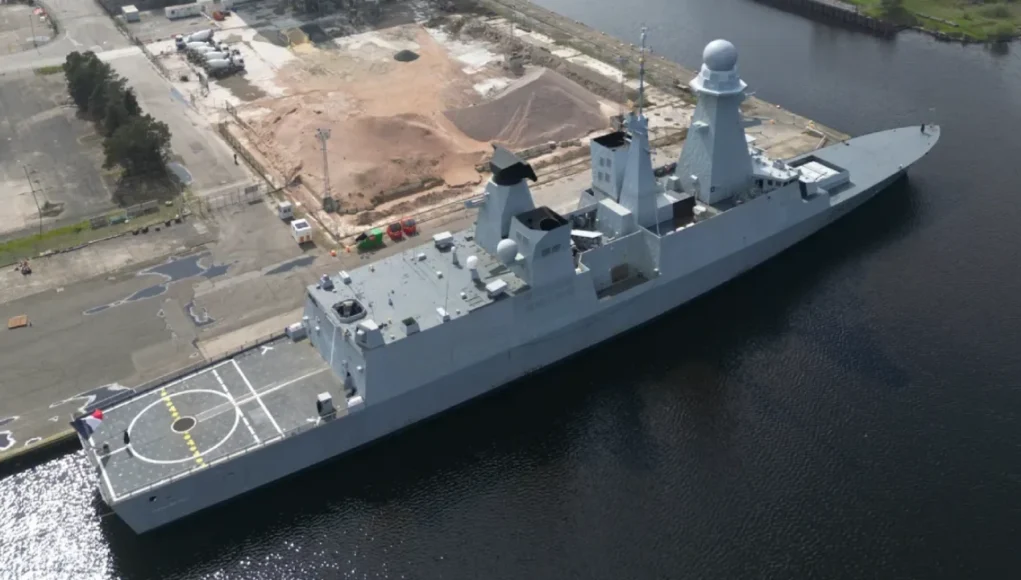
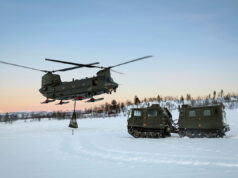


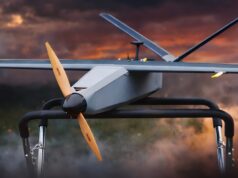
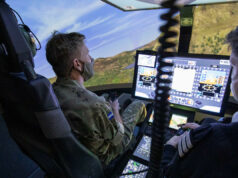
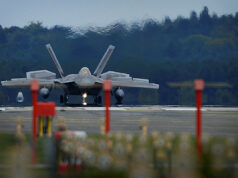
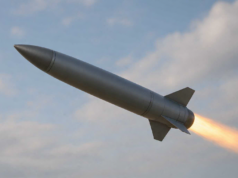


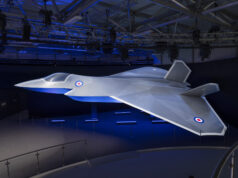

As a question, this wasn’t you George was it?
It was not.
But the PF was likely Moira Orr:-
‘The procurator fiscal has the discretion not to prosecute and pursue alternatives free from political interference, but is always subject to the directions of the Crown Office and Lord Advocate’.
My bad, it’s Edinburgh. Wrong PF
Haha that’s what I was thinking. It’s George’s weekend name in the article.
So the guy is completely innocent and yet decides not to contest the charges at all….
It is expensive arguing with the state.
If the facts are as stated this is very very wrong.
The state has limitless resources.
I do wonder if George, by publicising this, isn’t trying to push the reset button and get a rethink?
It would be a shame is the supply of beautiful photos dried up.
From my earlier post, i.e. when I cottoned that the article was Edinburgh, not Glasgow, I did a ‘flyover’ (Google Earth – no French warships in sight).
Lot of undeveloped waterside at Leith Port, it appears. Seen reference to the ‘exciting’ complex 31 mixed residential & energy hub, but did consider if anything more naval support oriented would start to occupy Government minds, with war forecasts now more candidly expressed. Perhaps one for future consideration.
Correct. And your point is?
Did you not read or understand the article?
Yes, I read it. It’s a fabulous defense of your friends opinion. If it’s accurate or not, no one knows. The crown thinks otherwise.
I will go with if George has seen flight logs and drone experts agree with his assessment it’s correct.
M thoughts being George wouldn’t publish something he knows to be false and risk ruining his reputation, standing amongst people, government committees expert and so on.
You need to make more effort at understanding the basics me old china.
Esteban, I appreciate your scepticism but let’s clarify a few things.
Firstly, this defence isn’t simply my opinion. It is a detailed analysis, supported by UK drone laws and regulations. During its creation, we consulted several drone experts and carefully examined flight logs.
Secondly, to say that ‘no one knows’ if the defence is accurate isn’t quite right. The arguments presented align with existing UK drone laws, and these are facts that can be independently verified.
Lastly, with regards to the Crown’s viewpoint, the charge isn’t about ‘spying’, ‘overflying’ or ‘invading privacy’. It is about ‘culpable and reckless conduct’, and based on the defence provided, there seems to be a lack of substantial evidence for such a charge.
The decision to accept the fine instead of contesting the charge in court was due to the high cost and extensive time commitment required for litigation, rather than any admission of guilt.
We must avoid conflating the acceptance of a fine, potentially a decision made under duress, with an admission of wrongdoing. The issue is far more nuanced than that.
There should be some kind of mechanism in place where a person gets free legal aid for review/pre trial (I’m not a lawyer) if the charge falls into some category’s such as a fine where no theft, violence or alcohol is involved.
It’s not fair to dangle a carrot of take this little fine even if. Or guilty or pay many times more to prove innocence. Innocent until proven guilty has to be applied in all cases. It’s a bedrock of society.
What’s worse is if he gets another charge this previous one will be brought up to make the situation worse.
Donated. However, it these present times Dave needs to take extra care and clearance. The French in uniform aren’t ‘woke’.
And that is the issue, the Fluffy Rainbow Unicorn Brigade have not passed to the detachment of Marines who are there to defend there sovereign soil.
and being a smart arse will get you a smack in the mouth.
How the frag did the cheese eating surrender monkeys get away wi that??
😡
Hope Mr Cullen’s alright 👍
Where the YLT when they’re needed. 😂🙈
Young leith team.
I find it hard to imagine that they had the green light from the pacha to punch a Scottish civilian for no reason while being docked at a Scottish port.
(I mean an English, that would be natural, but we like the Scots!)
I don’t know how it really works in this kind of situation, we all have our laws, but in the case of a foreign military vessel?
Are these laws adapted to the foreign ship (taking into account the way in which the ship assesses a given threat), or can the foreigner only follow local laws?
We all know that threats, especially drones, can be perceived differently around the world.
How are navies dealing with this?
I mean, even if they have to “intercept” for X reason, that should have been the job of local forces/police, the French should only have acted if there was an imminent threat.
It’s… strange.
What is the pacha?
Ship’s commandant
Ok. We’ve had two Aquitaine class frigates dock near where I work in the last 3 months with no issues. The second time they came with a Type 45 for the Western approach commemoration.
Always fun to watch the French Navy lads on a run ashore explaining in very clear terms to some idiot that taking the urine out of the red pom pom on top of their hats wasnt a good thing to do.
Heh, heh. Always a good wind up/fun pour le ros beef. 🐄😉
Looks possibly like the French guys overeacted badly & now HMG is trying to cover it up to avoid embarrassment & a diplomatic incident rather than exonnerating Dave & charging those who asaulted him & any officer in charge who may have ordered it.
Plus justice should be a right & duty of HMG, not the privelage of those who can afford it.
I’m taking punch in the arm with a pinch of salt.
Now assaulted with a baguette 🥖, tied up with a string of onions would be more in line. 🙈😂😂😂
There needs to be a clear up of drone laws around warships.
I can imagine the captain saying get that drone away from my warship to the sailors and they have to go off not having English as a first language (never mind Edinburgh accent) and deal with a guy who is like no, I’m allowed to fly here. No sailor wants to tell the captain sorry sir he’s not doing it.
Really local police should be on rapid response when a warships in town and the ships command should use them.
Yes…
As far as I know, in France, you can’t make such flights with drones, but I don’t really know the laws.
To me, it makes sense that you can’t go near military ships, let alone foreign ones.
But that doesn’t change the fact that a local force/Police should be present and that it’s not up to the French (or any other foreigner) to intervene in a dispute if not an immediate threat.
But the perception of the threat is very different depending on whether you’re on the ship or from our desk.
You do have to question why and considering we cannot fly Drones in central London without applying for a license and that the fella who says he was in the right actually did something to prove otherwise.
Maybe within the Drone experts didn’t take the view you are over flying and classed as spying on a foreign nation Military area, as face it you cannot walk on that ship with a camera.
Much the same law covers from stalking you neighbour nude sunbathing, if your innocent the law will find in you Not Guilty.
If you gave it a biggen to 4 soldiers you got what you deservered.
Appreciate your perspective. However, the operation was fully within the bounds of UK drone regulations and the CAA’s Drone Code. The drone weighed less than 250g, did not overfly a restricted area, and the flight was conducted responsibly. It’s important to distinguish between taking footage in public spaces from a lawful drone flight and ‘spying’. Any suggestion of the latter requires substantial evidence.
evidence that would be held in the said drone. and when you get detained by MPs usually they will hold you if you resist, or they can shot you. in common with the bruises shown. French Navy may have different ideas. and maybe just maybe asking the C/O would of been polite ????
Jon wrote:
Common knowledge when i was based in Chatham that if the shore patrol caught you coming out out of a married quater when the old man was away. They would drive you out into the sticks, make you drink half a bottle of something pour the other half over you and proceed to work you over with the pick helves they carried.
In that case, why is he not having his day in court?
Yes, that’s the obvious question.
George already told you the answer to that question further up. Need to read replies to ur posts
Obvious questions you seem to struggle with, along with just about everything else me old fence climber.
Did u read the article. It states the costs were too high.
The lawyer costs would be thousands. If you can’t afford to pay that taking a £50-500 fine makes sense.
I wouldn’t say understandable but can see the French perspective in this. Flying a drone over a foreign military ship is logically a no no even more so when the foreigners in question aren’t knowledgeable in local laws i would say
TBH it would make more sense if commissioned ships automatically had a NFZ above them.
Say 250m?
That way you can get decent drone shots but nobody gets too scared? Let’s be honest if we were crew and the drone alert went off we would be quite worried.
If you really enjoy your special relationship. And you want foreign worships to hang around your coast. Flying annoying drones over the top of them is probably not a great idea. There are very, very few places in the UK where you should not be able to fly a drones. All you have to do is look at the video evidence from Ukraine and for everyone else for the last 10 years. It looks bad and it really pisses off the people that are supposed to be your allies.
Which is why I suggested a 250m meter No Fly Zone……?
Yaaaaaaawn, more chuff.
What a stitch-up! Sounds like it’s the French guards who should be being fined or more for assault & harrasment, not someone doing nothing wrong, going about their lawful buisness.
The article says a 24 year old man has been charged with assualt in addition to the drone operator.
So it’s a warning for assault and a fine for being assaulted? 🤡
Can’t see the SNP declaring War on France over this incident , that would put the kibosh on Scotland rejoining g the EU sorry George
I’d offer to support costs in fighting the charge, but accepting the fine is an admission. So suck it up.